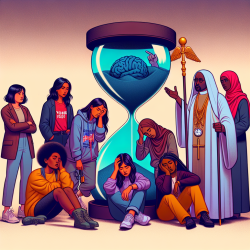Introduction
The intersection of arrhythmias and cognitive function has become a focal point for medical research, particularly in understanding how conditions like atrial fibrillation (AF) can impact cognitive decline. The expert consensus by the European Heart Rhythm Association (EHRA), Heart Rhythm Society (HRS), Asia Pacific Heart Rhythm Society (APHRS), and Latin American Heart Rhythm Society (LAHRS) offers a comprehensive review of current knowledge and provides guidance on best practices for managing these conditions.
Key Insights from the Research
The consensus highlights several critical areas:
- Terminology and Epidemiology: The document clarifies the definitions of cognitive decline, mild cognitive impairment, and dementia, and discusses their prevalence globally.
- Assessment Methods: It emphasizes the importance of standardized cognitive assessments and imaging techniques in diagnosing cognitive impairments associated with arrhythmias.
- Atrial Fibrillation and Cognitive Function: AF is linked to increased risks of cognitive impairment and dementia, even in the absence of stroke. The research suggests that silent cerebral infarcts and systemic inflammation may contribute to cognitive decline in AF patients.
- Therapeutic Strategies: Anticoagulation therapy, particularly with non-vitamin K antagonist oral anticoagulants (NOACs), is recommended for reducing stroke risk, which in turn may help mitigate cognitive decline.
Implementing Research Outcomes
Practitioners can enhance their skills by integrating these research findings into clinical practice. Here are some actionable steps:
- Regular Cognitive Assessments: Implement routine cognitive assessments for patients with arrhythmias to detect early signs of cognitive decline.
- Optimize Anticoagulation Therapy: Ensure appropriate use of anticoagulants, especially NOACs, to reduce stroke risk and potentially prevent cognitive deterioration.
- Patient Education: Educate patients and caregivers about the risks of cognitive decline associated with arrhythmias and the importance of adherence to prescribed therapies.
- Interdisciplinary Collaboration: Work closely with neurologists and geriatricians to provide comprehensive care for patients with cognitive impairments.
Encouraging Further Research
While the consensus provides valuable insights, it also identifies gaps in current knowledge, particularly regarding the mechanisms linking arrhythmias to cognitive decline. Practitioners are encouraged to engage in further research and contribute to the growing body of evidence in this field. Areas for future research include the impact of different arrhythmia management strategies on cognitive outcomes and the role of lifestyle modifications in preventing cognitive decline.
Conclusion
The EHRA/HRS/APHRS/LAHRS consensus on arrhythmias and cognitive function offers a robust framework for improving patient care. By implementing these recommendations and engaging in ongoing research, practitioners can enhance their skills and contribute to better outcomes for patients with arrhythmias.
To read the original research paper, please follow this link: European Heart Rhythm Association (EHRA)/Heart Rhythm Society (HRS)/Asia Pacific Heart Rhythm Society (APHRS)/Latin American Heart Rhythm Society (LAHRS) expert consensus on arrhythmias and cognitive function: What is the best practice?










